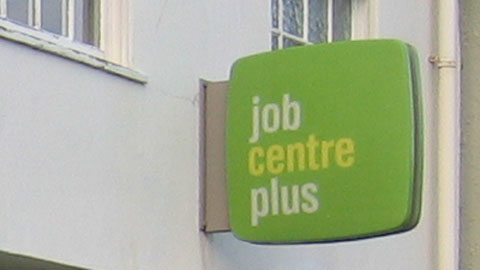Continuing ELL’s look into the impact of the welfare reforms brought in by the coalition government, today we investigate Jobseeker’s Allowance sanctions and the increasing number of East London Line residents having their benefits removed.
Long-time Hackney resident Peter Adebayo, 38, had his benefits cut last year after he was unable to make a Job Centre interview due to a hospital appointment.
Peter signed on regularly for several weeks and spent his days looking for work, but Peter saw his benefits cut last December.
“I told my advisor that I needed to rearrange my next sign-in but he said I had to change the hospital appointment instead,” explains Peter, “In the end he just ended up losing his temper and telling me I was not taking looking for work seriously enough and he’d have to sanction me.”
“I was sanctioned for three months. During this time, I had to rely on my girlfriend for money and we really struggled.” Peter is one of the tens of thousands in the ELL’s boroughs to have seen their Jobseeker’s Allowance cut.
The number of ELL residents to see their Jobseeker’s Allowance cut per year has risen by 65 per cent since the coalition came into power.
Across all ELL boroughs, 28,000 people had their Jobseeker’s Allowance cut last year. This is a significant rise from the last full year – before the coalition came into power. These so-called ‘JSA sanctions’ mean that ELL residents hit with cuts have had to, in some cases, survive with no income for up to three months at a time.
In each of the boroughs, there has been a considerable increase in the number of ‘JSA sanctions ‘ being brought against claimants per year. All four of the ELL boroughs have some of the highest level of sanctions being brought against claimants when compared with the rest of London.
The rise in sanctions across ELL has coincided with a raft of tougher policies brought in by Minister for Work and Pensions, Iain Duncan Smith.
After announcing his new sanction plans in 2010, Duncan-Smith, said they would “represent a fairer deal for for both the jobless and the taxpayer.”
Since then, he has further increased the number of circumstances in which jobseekers can have a sanction imposed.
In 2012, new rules were introduced which meant that claimants could now see their benefits cut for a month for arriving late or for missing an interview, failure to participate in a work programme or leaving a job or programme without good reason.
This was followed by a decision to increase the severity of punishments on those that did not adhere to the Department for Work and Pension’s JSA guidelines. The minimum duration of a sanction was raised from a week to a month, whilst those who received maximum sanctions could see their JSA removed for three years.
According to the DWP, the new JSA sanctions regime, encourages people to engage with the support being offered by Jobcentres by making it clearer to claimants what they are expected to do in return for their benefits – and that they risk losing them if they don’t
stick to the rules.
Yet, critics say that the new system is confusing and does little to reduce the numbers of those hit with sanctions. Tim Nicholls spokesman for Child Poverty Action Group said, “Claimants are finding it increasingly confusing to understand what the sanctions regime expects of them, and many sanctions appear to happen when people are trying to do the right thing.”
“The system has become an unhelpful bureaucratic nightmare, with Jobcentres setting targets to arbitrarily push up the numbers of people hit with a sanction.”
Hackney has seen the biggest increase in the ELL area, in the number of people to be sanctioned. In 2012/2013 the total was almost double the number for the year before the coalition came into power.
Lewisham has also seen an increase over the last three years. Last year alone, 7,000 Jobseekers were sanctioned, a rise of almost 2,000 from the year before. Clive Baulch, 57, a former social worker and long time Lewisham resident, was one of many who saw their sanctions removed last year.
“I turned up to my appointment on time at 2 o’clock but I was kept waiting for two hours because all the staff were in a management meeting. I said to my advisor if it was on the other foot I’d have been sanctioned for that,” Clive explains.
“Then she asked to see my work diary and said I’m gonna have to sanction you because you haven’t been looking for work diligently enough even though I’d applied for over six hundred jobs in five months.”
“As soon as this happened, I was in a state of disbelief and shock. I tried to appeal to a better nature but I didn’t have one. I went home and lay on the bed thinking what the hell am I going to do I do now – where is my next meal going to come from.”
Croydon and Tower Hamlets also saw significant increases in the number of adverse decisions with Croydon growing by 75 and 53 per cent rise, when compared with the last full year before the coalition government came to power.
In response to the findings, a spokesman from the DWP said: “The increase in the number of sanctions over the 4-year period is larger in these particular London boroughs than the overall increase for London, but across the 4 boroughs is broadly in line with the increase seen at a national level. There are often variations in the number of sanctions made at a regional level, which could be affected by a variety of factors.”
“Every day, Jobcentre Plus advisers are successfully helping people off benefits and into work so they can secure their future. Sanctions are only used as a last resort, but it’s only right that people claiming benefits should do everything they can to find work if they are able.”
Joanna Long a spokeswoman for Boycott Workfare, a campaign group that has been particularly vocal about the reforms to JSA sanction systems, said that sanctions “were a brutal backdoor cut to social security.” She said: “The safety net has been removed and the vast increase in sanctions is driving hunger, homelessness and hardship.
Jobcentre targets mean sanctions are handed out for the most trivial of reasons, but can cause the most brutal devastation to lives – now leaving people without even a subsistence income for up to three years at a time.”
Check out yesterday’s look into the impact of the “bedroom tax” on ELL residents







